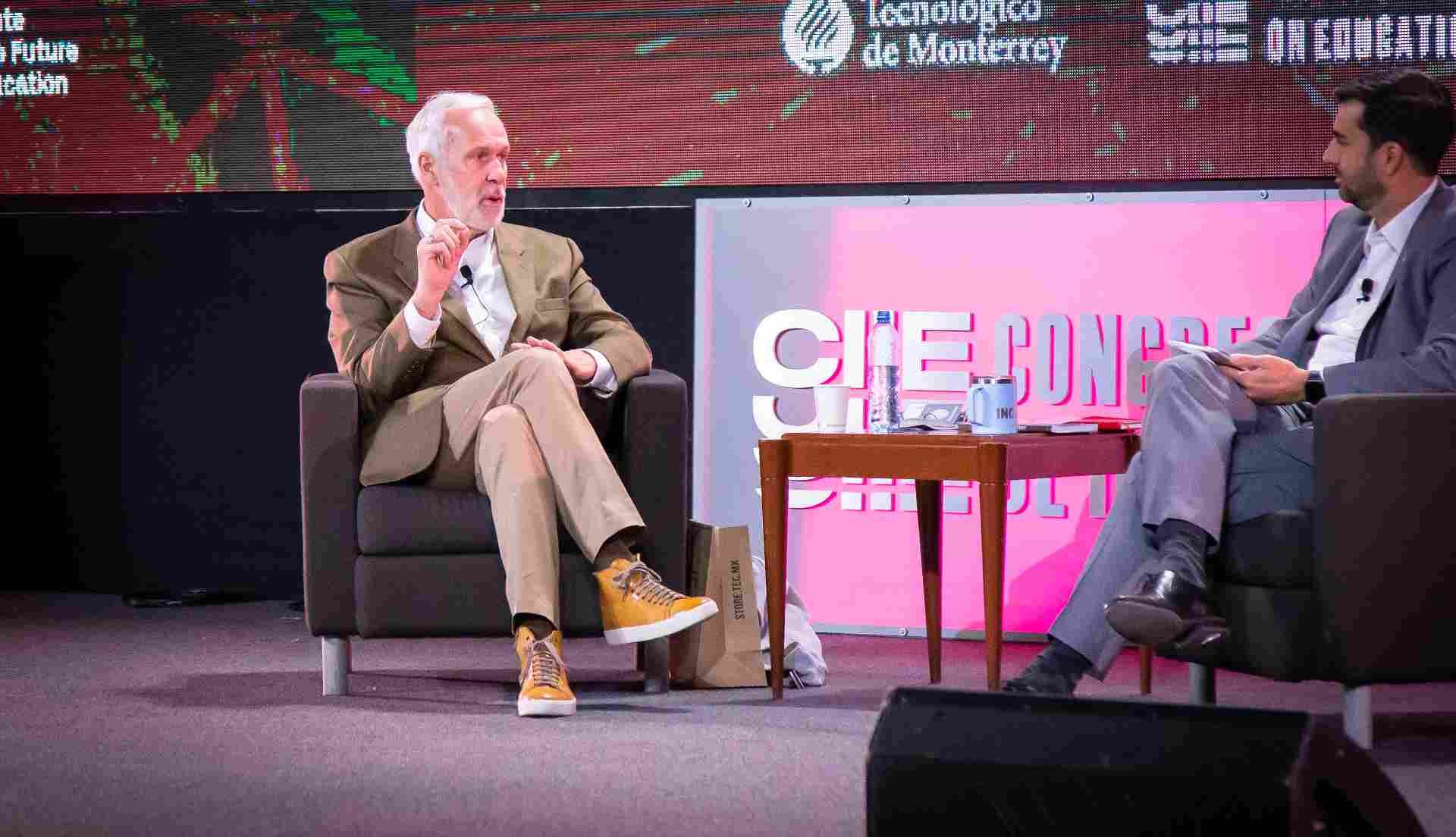The expert proposes defining the way of measuring learning before the educational curriculum and focusing on students’ wishes.
This article was first published on TecReview.
Southern New Hampshire University Rector, Paul LeBlanc, believes in changing the educational model, which he’s beginning to do from his position. Forbes magazine called him one of the 15 Classroom Revolutionaries in America. What does he think of the current system for grading students? He calls it an “immoral act of power.”
A university without grades?
During the 8th International Conference on Educational Innovation (CIIE for its initials in Spanish) organized by Tec de Monterrey, LeBlanc discussed his latest book ‘Students First’ with Juan Pablo Murra, Rector of Undergraduate and Graduate Studies. During his participation at CIIE, LeBlanc said that “grades are an act of immoral power. You’re judging young students through hierarchical power. It’s taking a step back, looking at them, and saying, “I place you here in week 15 of the course,” instead of thinking of assessments as an act of learning. Something you have not yet achieved, not as an act to be judged,” he said.
What does he propose? Reverse engineering. This means not first offering what you want to teach and then making a work plan, and finally evaluating. It’s better to start with what the students want to learn.
“The evaluation should say, “You’re not there yet,” which doesn’t mean you’re not going to get there, simply that you’re not there yet. For example, I don’t want the pilot flying my plane to only have 85% landing skills. Giving a student an eight doesn’t mean anything. We made a promise they’d possess certain skills, and we have to fulfill that promise. And that’s an essential part of the process,” he said. He proposes that higher education should be focused on results, knowing precisely what we want our students to learn—and measuring it rigorously. That way, we’ll have enormous freedom over what we can achieve. This unlocks new pedagogical models.
Student debt is turning the American dream into a nightmare
LeBlanc says that higher education no longer represents a part of the American dream for many Americans. “I was the first generation in my family to go to college. It sounds corny, but to me, higher education was kind of like the ‘American dream.’ It was a vehicle of economic opportunity, social mobility, and social justice. But for many Americans, this is an increasingly distant dream. They ask for a loan, take some courses −they don’t finish their studies− but they do end up with a lot of debt. And 45% of people who start higher education don’t finish it,” he explained.
Paul LeBlanc claimed that student loan debt is one of the largest in the United States, only comparable with mortgage debt. “In the United States, we don’t just see a lot of income inequality. Student debt totals 3.7 billion dollars, only comparable with mortgage debt. Not even all the credit card debt in the country is comparable.”
Thinking about students first
“It’s rare for me to meet someone in higher education which isn’t interested in the students. Most of us care about students. We call it a ‘vocation,’ but we don’t think much about what students need,” LeBlanc said.
He says courses should be much more flexible, considering that students come from different socioeconomic backgrounds. Nor can they keep the credit hour system used in most universities. “I think measuring learning credits is like the Higgs Boson. It’s the dark matter that binds the universe, but nobody understands it, and we don’t know what to do with them. They’re good for administration but terrible for learning,” he said.
This article from Observatory of the Institute for the Future of Education may be shared under the terms of the license CC BY-NC-SA 4.0 
)
)

)